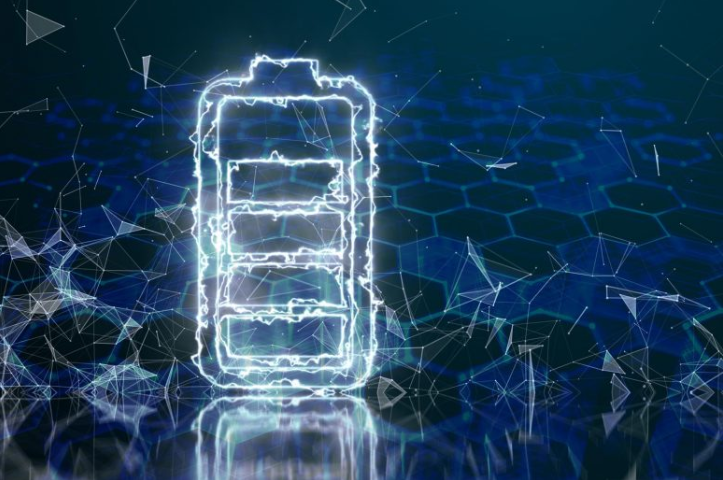


 11:53:23
11:53:23  2025-01-11
2025-01-11  964
964

Professor Jong-sung Yu’s team developed a nitrogen-doped porous carbon material that boosts lithium–sulfur battery performance, achieving rapid charging (12 minutes) and long-term stability (82% capacity retention after 1,000 cycles). This breakthrough could accelerate battery commercialization.
A research team led by Professor Jong-sung Yu from the DGIST Department of Energy Science and Engineering, under President Kunwoo Lee, has developed a groundbreaking technology to dramatically improve the charging speed of lithium-sulfur batteries. The team introduced an innovative nitrogen-doped porous carbon material to overcome the slow charging limitations that have stalled the commercialization of lithium-sulfur batteries.
Lithium-ion batteries, while essential for eco-friendly technologies like electric vehicles, face challenges due to their limited energy storage capacity and high production costs. In contrast, lithium-sulfur batteries have emerged as a promising alternative, offering higher energy density and benefiting from the affordability of sulfur as a key material. However, their commercial viability has been hampered by inefficient sulfur utilization during rapid charging, leading to reduced battery capacity.
Challenges in Lithium–Sulfur Battery Development
Another issue is the lithium polysulfides produced during the discharge process. These compounds migrate within the battery, degrading its performance. To address this, researchers have been developing batteries by incorporating sulfur into porous carbon structures. However, they have yet to achieve performance levels suitable for commercialization.
To solve these challenges, Professor Yu’s team synthesized a novel highly graphitic, multiporous carbon material doped with nitrogen and applied it to the cathode of a lithium–sulfur battery. This technology successfully maintained high energy capacity even under rapid charging conditions.
Synthesis of the Advanced Carbon Material
The newly developed carbon material was synthesized by employing a thermal reduction method that involves magnesium and ZIF-8.
ZIF-8 is a metal-organic framework (MOF) formed by the coordination of metal ions and organic ligands. It is characterized by its high thermal and chemical stability, as well as its distinctive porous structure.
At high temperatures, magnesium reacts with the nitrogen in ZIF-8, making the carbon structure more stable and robust while creating a diverse pore structure. This structure not only allows for higher sulfur loading but also improves the contact between sulfur and the electrolyte, significantly enhancing battery performance.
The lithium–sulfur battery developed in this study utilized the multifunctional carbon material synthesized, through the simple magnesium-assisted thermal reduction method, as a sulfur host. Even under rapid charging conditions with a full charge time of just 12 minutes, the battery achieved a high capacity of 705 mAh g⁻¹, which is a 1.6-fold improvement over conventional batteries. Furthermore, nitrogen doping on the carbon surface effectively suppressed lithium polysulfide migration, allowing the battery to retain 82% capacity even after 1,000 charge–discharge cycles, demonstrating excellent stability.
During the research, the collaborative team, led by Dr. Khalil Amine of Argonne National Laboratory, performed advanced microscopic analyses. These analyses confirmed that lithium sulfide (Li₂S) was formed in a specific orientation within the layered structures of the newly developed carbon material. This finding validated that nitrogen doping and the porous carbon structure enhanced sulfur loading, while the graphitic nature of the carbon accelerated sulfur reactions, thereby improving charging speed.
Professor Jong-sung Yu remarked, “This research focused on improving the charging speed of lithium–sulfur batteries using a simple synthesis method involving magnesium. We hope this study will accelerate the commercialization of lithium–sulfur batteries.”
Reality Of Islam |
|

Labor short

A new ultra

Batteries p
 9:3:43
9:3:43
 2018-11-05
2018-11-05
10 benefits of Marriage in Islam
 7:5:22
7:5:22
 2019-04-08
2019-04-08
benefits of reciting surat yunus, hud &
 9:45:7
9:45:7
 2018-12-24
2018-12-24
advantages & disadvantages of divorce
 11:35:12
11:35:12
 2018-06-10
2018-06-10
 6:0:51
6:0:51
 2018-10-16
2018-10-16
 8:21:9
8:21:9
 2018-06-21
2018-06-21
 7:6:7
7:6:7
 2022-03-21
2022-03-21
allah will not answer all your prayers
 6:56:28
6:56:28
 2022-01-01
2022-01-01
 8:15:37
8:15:37
 2023-02-16
2023-02-16
 4:26:43
4:26:43
 2022-02-21
2022-02-21
 10:35:40
10:35:40
 2022-05-26
2022-05-26
 12:47:1
12:47:1
 2022-12-20
2022-12-20
 5:41:46
5:41:46
 2023-03-18
2023-03-18
| LATEST |